What is FATE RPG?
FATE is a tabletop RPG system that is agnostic to any specific setting. It relies on players thinking out of the box, being proactive and playing with creativity and imagination. It was first published by Evil Hat Productions in 2003, and the latest 4th edition was launched in 2013 as a Kickstarter, including variants of the systems that will be talked about here briefly. The system itself is published under two free content licenses: CC BY 3.0 and the Open gaming license.
What is so cool about FATE?
For the FATE fanbase, the game is not just a standard RPG. They call it a “toolkit”, because it is generic, it is designed at its core to have its rules modified and be very powerful for home brew and custom designs for game experience. It focuses on narrative and centers around the player characters.
The biggest premise is about having Aspects, small short sentences that give a brief explanation about your character, like Low-level Thug or Black Sheep of the Thompson Family. These aspects can be anything really, and the book explains and gives examples about how to create good ones. They are about the character themselves, his contacts or family, her personality traits or possessions, and must either be an advantage or a problem, depending on the situation. It also involves relationship aspects with other characters (Crossing Paths Aspects) and Trouble Aspects.
The RPG mechanical part of it, is a skill list, which is designed to be customized or used as is. Characters have a skill pyramid in which they decide in which they are very good, in which okay and in which mediocre. It also includes rules for adding stunts and extras, but mostly everything is just aspects (with slight different mechanical interpretations). Small phrases that describe what they are about and perhaps a mechanical rule for it. Even places or organizations have aspects, even the game itself has aspects! Players can call to (invoke) them and use them to their favour, or the GM as problems against them.
FATE in game, uses custom d6 dice, however it can be played normally with just d6 dice really. The dice either gives -1, +0 or +1 to the base skill stat, you add them altogether and get your final result, compare it either against a difficulty value or opposed to someone else, if it’s the case. All players have to play with is their aspects, skills and stunts, and look for creative ways to use them when they see fit, by using FATE Points.
Fate Points are the resource management of the system. Basically it is a currency for players to invoke their Aspects in order to get bonuses or re-rolls, and can gain them back by accepting compels: Dramatic situations that plays against them.
Who is FATE good for?
- Good for those who don’t feel like reading long ruleset books of mechanical rules.
- Good to jump in across different systems with the same rulesets.
- Amazing for World Builders, Homebrews and Customization of rules to achieve desired dramatic experiences.
- Good for improvisation and collaborative games (NPCs, Places, even Organizations are just aspect sentences).
- Good for roleplaying and story-telling, that focuses on characters arc and growing paths.
This may be arguable, but FATE is a double edged sword system. On one way it can be great for new RPG players because there aren’t too many rules. However, it can be also daunting at the same time, because there are no class lists, no race lists, no item lists or special abilities list. So, someone without any experience in Roleplaying games may be lost and intimidated by coming up with their own ideas.
Who is FATE not good for?
- Not good if you like Crunchy Games with long lists of items and powers, and enjoy making combos and builds.
However: FATE is Perfectly capable of handling equipment and magic with mechanical significance through extras. - Not so good if you enjoy tactical combat, where the 2 meters distance from target allows using “war machine” giving +1 vs Orcs and can be combined with “barbarian rage” if using it on a forest up to 3 meters away from a dead tree.
However: Extras & Stunts do have requirements to be used and be quite mechanically significant, if used right. - Power Builders and PVP. It’s just not meant for that. FATE is heavily collaborative and relies on players sharing and working together. Without Balance in mind.
However: FATE provides rulesets that ensure all players have equal opportunities to be significant in a story.
I am confused, I play D&D!
Yes, you might panic a bit. FATE needs a mindset switch. Forget everything you know about RPG games and start over. FATE doesn’t have power builds, combos, rulesets, new classes or fancy level 18 items. In fate you just play with your sheet, sticky notes to write down “temporary” aspects and dice. Everything is mostly short sentences. No ammo management, no long item lists and no strict rules for equipment requirement. Even items can be implicit in your aspects, like “Veteran solider with an AK-47″ already says and gives you that weapon if your GM agrees.
However, all of these small “no” points, can be supplemented in FATE to get closer to simulation. The book itself provides rules for it if desired. Particularly the toolkit books, which we’re explaining next.
Lots of FATE books! what is going on?
Do not worry! FATE is always FATE and the concepts are always the same across all editions. They are all mostly “enriched” versions of it to accommodate to different needs. Here’s what you need to know:
- FATE Core: It’s the base rulebook, 300 pages of self contained FATE rules, with plenty of examples, ideas and and explanations that help customize the system. I would recommend this one for first-timers.
- FATE Accelerated: 50 pages version of FATE that makes it great for quick games and one shots. Instead of skills, stunts and extras, you only define how your character does stuff: Carefully, Flashy, Sneaky, Quickly, etc
- FATE Condensed: 60 pages version of FATE that is basically FATE Core summarized in a smaller amount of pages. So all examples are gone and how-to’s. It is great for players who know their way around fate. It also slightly modifies some rules to make FATE a bit easier to learn. For many, this is the best way to play FATE.
- FATE Toolkits: The System Toolkit enhances and customize the FATE game experience to your liking, expands on things like Magic, Cyberware and more techniques for building stunts and rules. Then, Adversary Toolkit, gets deeper into creating challenges, hazards, threats and enemies, as well as giving example settings and how to play them.
Finally, other Fate Books are setting-specific oriented, among these are really beloved ones like Dresden Files, Venture City for Superpowers, Nova Praxis, Atomic Robo or Fate of Cthulhu.
Enough fluff, I have Foundry VTT. Where do I start?
There are two great systems for FATE in Foundry VTT:
FateX – by Patrick “Daddi” Bauer
Gorgeous looking system, designed with user interface in mind. You begin by creating “Templates” of characters (or anything really, such as Organizations or a Place). Since in FATE anything can act like a “character” and just has Aspects, Templates is just the right term for world builders and GMs.
It’s core strength is the ease and simplicity it allows you to define different character sheets to be used in a campaign, i.e. how the interface works and the template system. You can have full sheets for PCs and simpler sheets for NPCs and Mobs. And second, the vast amount of different languages supported: English, German, Spanish, French, Galician, Italian, and Chinese
Then, you can create characters out of these Templates.
Following the example shown earlier in the article, here we can see that you can enter a Character Edit Mode in order to modify the stats and aspects of the character. When you exit it, the character becomes “non-editable” and ready for play.
I recommend FateX when you just want to go ahead and play standard FATE (in any of its editions) with more or less the standard structure, and appreciate a nice clean UI and a small amount of effort to get going.
Modular FATE – by Richard “Skimble” Bellingham
Another option for playing FATE, Modular Fate is perhaps more oriented to “System Hackers” and “Foundry configuration freaks” 🙂 If you enjoy customizing every single piece of your game and approach it in a more modular and structured way, perhaps Modular FATE is for you.
In Modular FATE, as opposed to FateX, which works in Templates, it works more in “modules” or components. You can separately design Aspects, Skills, stunts and tracks by creating their own lists in a way they can be reused across different actors. It also includes a sub-app called FateUtilities that makes a summary of the game for the GM.
Modular Fate is built to be extremely flexible and can handle a wide range of Fate dials and options, and it presents a lot of critical information in a very convenient way with the FateUtilities app.
Both systems are great, and it is always good to have more than one option! This does not happen very frequently in Foundry VTT, so do enjoy it! Test both, see which one fits your needs and go. That’s the great thing about FATE in Foundry.
Recommended Modules for Fate in Foundry?
Hmm, this is always hard. What’s good for me may not be good for you.
However, if you insist… take a look at these:
Conclusion
Hope you have enjoyed this guide! FATE is really good for both short and long games. It is very flexible, powerful, narrative-focused game. Moreover, it can be used for different tones if set up right, like terror, investigation, action and exploration. I recommend at least checking it out, perhaps it is the one system that you pick up and stay with!
What do you think about Fate? Which system is best or which modules work great for FATE?
Share in the comment section below! Looking forward to sharing and hearing some thoughts as well!



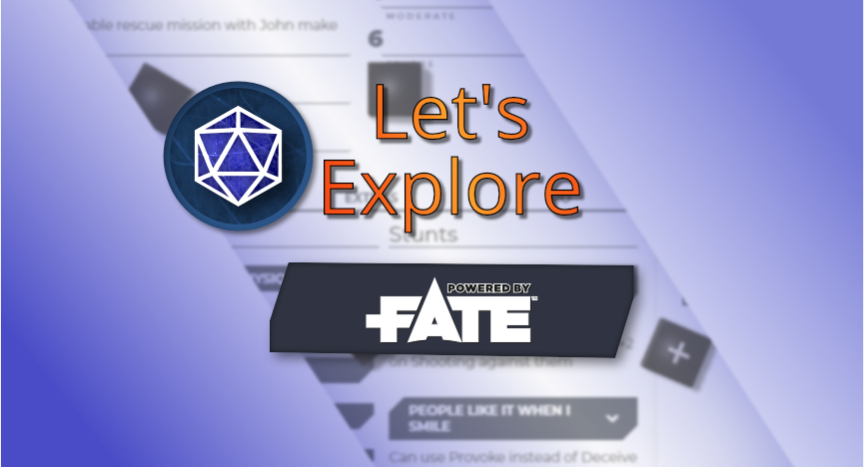



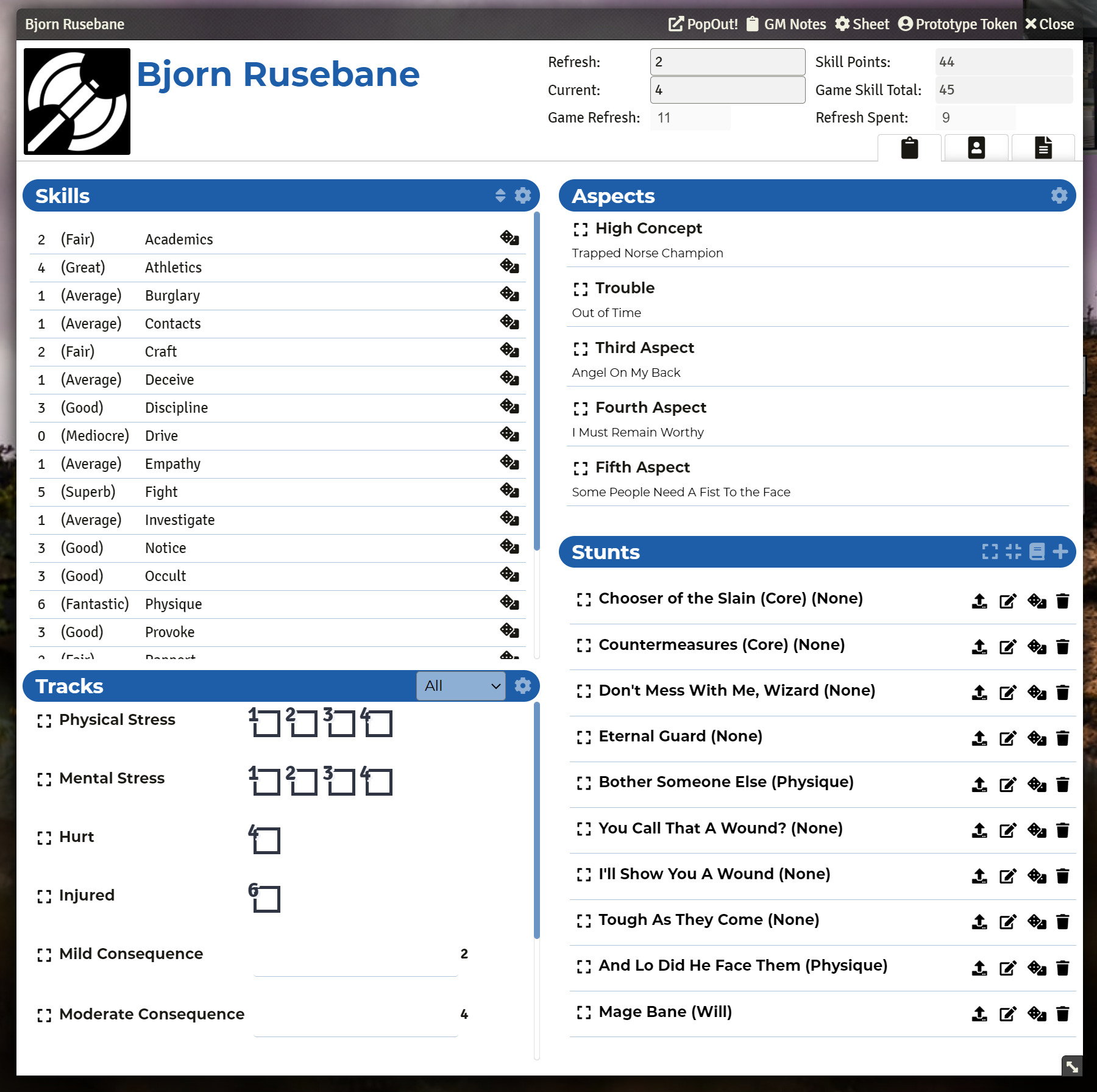
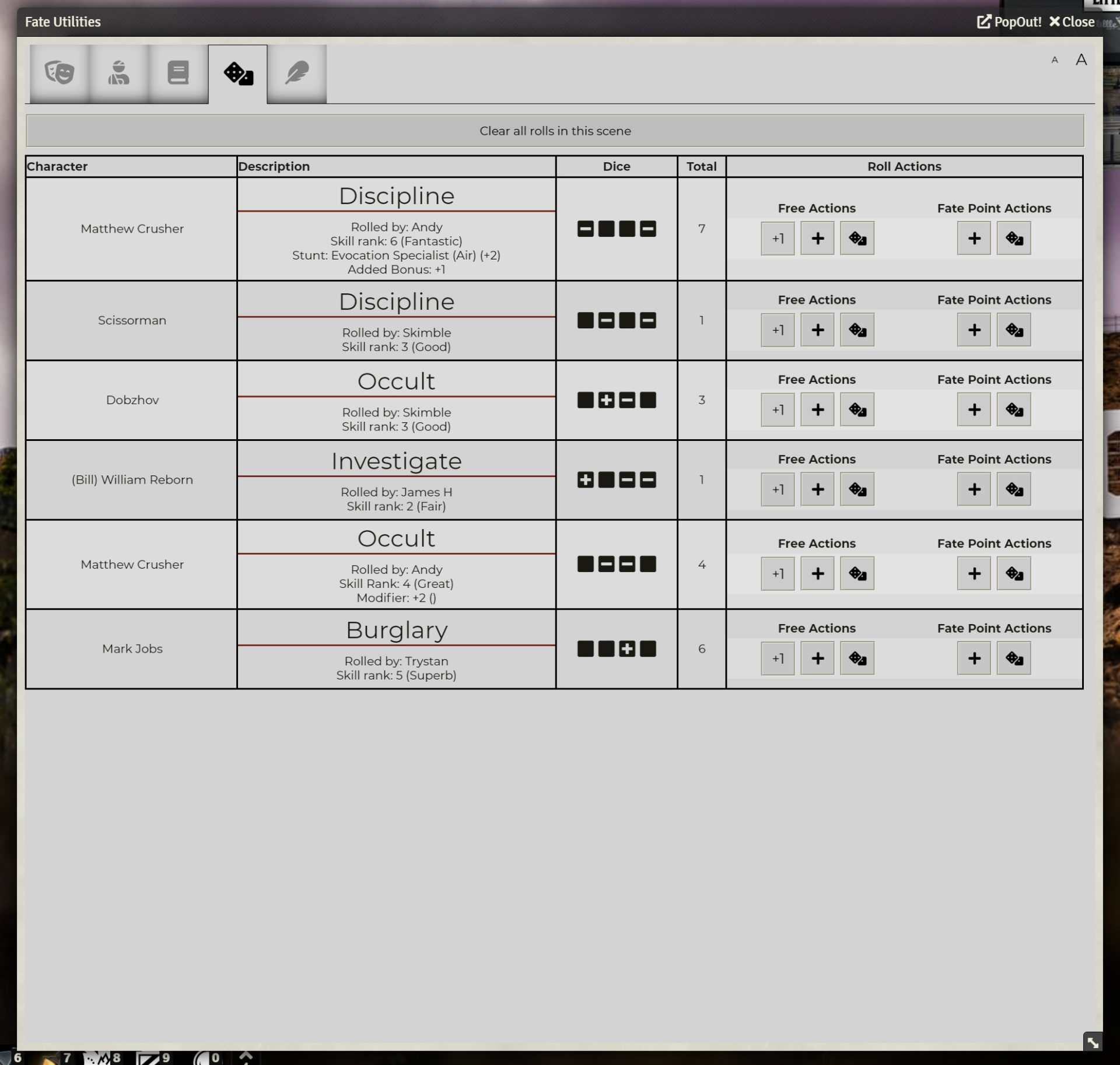
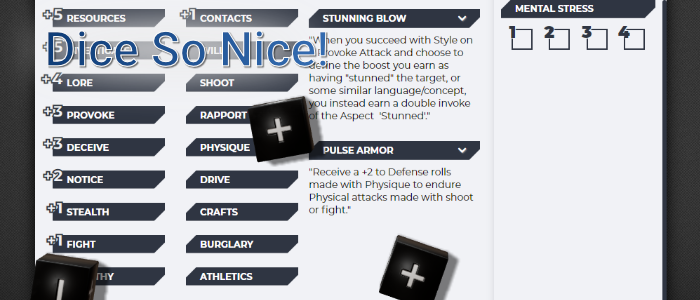
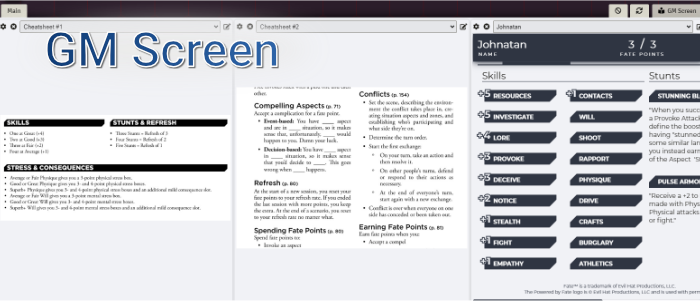
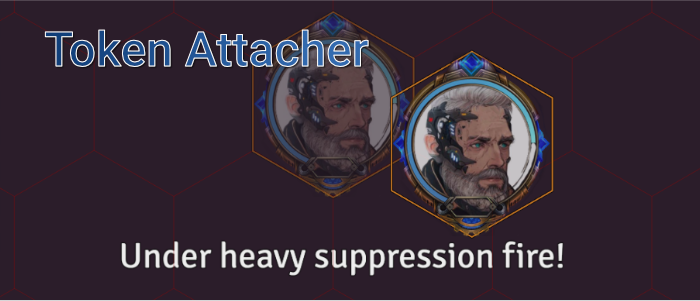
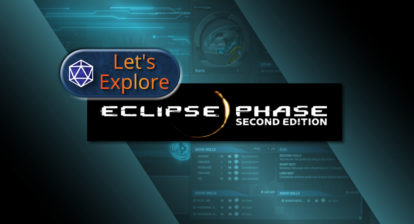

Nice write-up!
I’m a 5e DM, and have been wanting to branch out a little and try a few sessions with a different setting, and less prep.
After reading about Fate Core, I think I’m going to give it a try – seems like a system I could get my players set up in fairly easily.